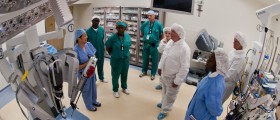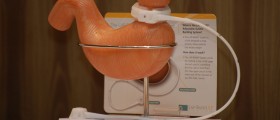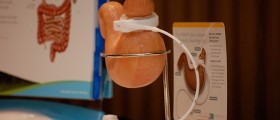
Lap band surgery or laparoscopic adjustable gastric band procedure is a type of weight loss surgeries. It is used in the people suffering from chronic obesity. Their extremely high body mass index (BMI) of 35 or even over 40 makes them suitable candidates for this surgical procedure.
This bariatric surgery was approved by the Food and Drug Administration (FDA) in 2001 to be used on obese people in order to lose some weight. There are certain regulations that have to be followed and every patient undergoes a series of tests to be safe. The common tests include: blood tests, gastroscopy and imaging studies.
The Procedure
Lap band surgeon uses small incisions to place the gastric band into the upper part of the stomach. The main goal of the surgery is to decrease the capacity of the stomach, in order to reduce the amount of the food patient need to eat. The band can be adjusted by a simple procedure after the surgery and suited for every patient. It can be inflated or deflated, depending on the rate of weight loss.
The procedure is fairly quick, and it usually lasts for less than one hour. It is performed in the hospital and the patient is under general anesthesia, but there doesn’t have to be hospital overnight stay. Full recovery takes some time, and it is estimated that it would last for a month or so, until the patient is completely recovered.
In the US you will pay around 17.000 to 30.000$ (USD) to have lap band surgery, including all costs. If you decide to undergo a lap band surgery in Europe, India, Australia or Mexico the surgical costs will take you about 15.000$.
Why Lap Band Surgery?
Lap band surgery has some advantages over other types of bariatric surgical procedures. The procedure can be reversed at some point if needed and patients do not experience nausea, diarrhea or stomach cramps after the surgery. In this type of weight loss surgery there are much smaller risks of anastomotic leak at the staple site, since the stomach is not stapled as in other procedures.
What are the Risks?
This type of weight loss surgery also carries certain risks, but there are fewer complications comparing it to some other weight loss surgeries. Patients might vomit the swallowed food if they are eating very quick and not chewing the food properly. There are also possibilities of experiencing heartburn, diarrhea, constipation, chest pain, blockage of the passage, gastric ulcer and gastric perforation.
















Your thoughts on this
Loading...